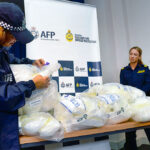TSA officials stated that the visit was a routine one and emphasized the necessity of reciprocal airport visits to ensure the security of international flights.
A House panel questioned Transportation Security Administration officials regarding their decision to provide a guided tour of Miami International Airport and TSA headquarters to a delegation from Cuba in May. Cuba, a state sponsor of terrorism and a close ally of China, sparked controversy with this visit.
During a hearing on July 9 led by Carlos Gimenez (R-Fla.), chairman of the House Homeland Security Subcommittee on Transportation and Maritime Security, the TSA’s actions were criticized as “outrageous.” The focus of the discussion was on the agency’s international operations and interactions with adversarial foreign governments, particularly the Communist regime in Cuba.
While Democrats on the subcommittee defended the visit as essential for aviation safety and part of a reciprocity agreement between the two countries, Republicans raised concerns about Cuba’s recent designation as a state sponsor of terrorism in 2021. They questioned why Cuba received special treatment when delegations from other adversarial countries like Iran, Syria, and North Korea do not tour U.S. airports.
TSA officials defended the visit as routine during the hearing, clarifying that the Cuban delegation did not access sensitive information and only observed standard airport operations. They highlighted that TSA officials have visited Cuban facilities more frequently than their Cuban counterparts visiting the United States in recent years.
Mr. Gimenez, a Cuban immigrant, expressed his dismay over a U.S. government agency welcoming officials from Cuba, a terrorism sponsor with ties to a secret Chinese spy base and strengthened connections with Russia.
Despite objections from lawmakers, TSA continued the tour, including a visit to TSA headquarters near Washington. Mr. Gimenez criticized the agency’s negligence, pointing out that senior TSA leaders were unaware of the visit.
However, Minority leader Shri Thanedar (D-Mich.) justified the visit, emphasizing the importance of meeting security requirements for foreign air carriers flying into the United States and inspecting them for compliance.
Tensions between the United States and Cuba have escalated due to the communist island’s relationships with U.S. adversaries. A recent report revealed the expansion of Chinese spy stations in Cuba, including one near the Guantanamo Bay U.S. naval base.
In June, Russian warships conducted military exercises near Cuba, raising concerns about security in the region. The visit of Cuban officials to U.S. airports sparked further debate about national security implications.
Apologies were issued by TSA administrators for not informing Miami authorities about the Cuban visit and pledged to improve coordination for future engagements. They stressed the need for reciprocity in airport visits between countries to enhance the security of international flights.
Lawmakers were cautioned about making allegations that routine TSA inspections could compromise national security, emphasizing the careful handling of such accusations.
The Associated Press contributed to this story.
Can you please rewrite this sentence?
Source link





